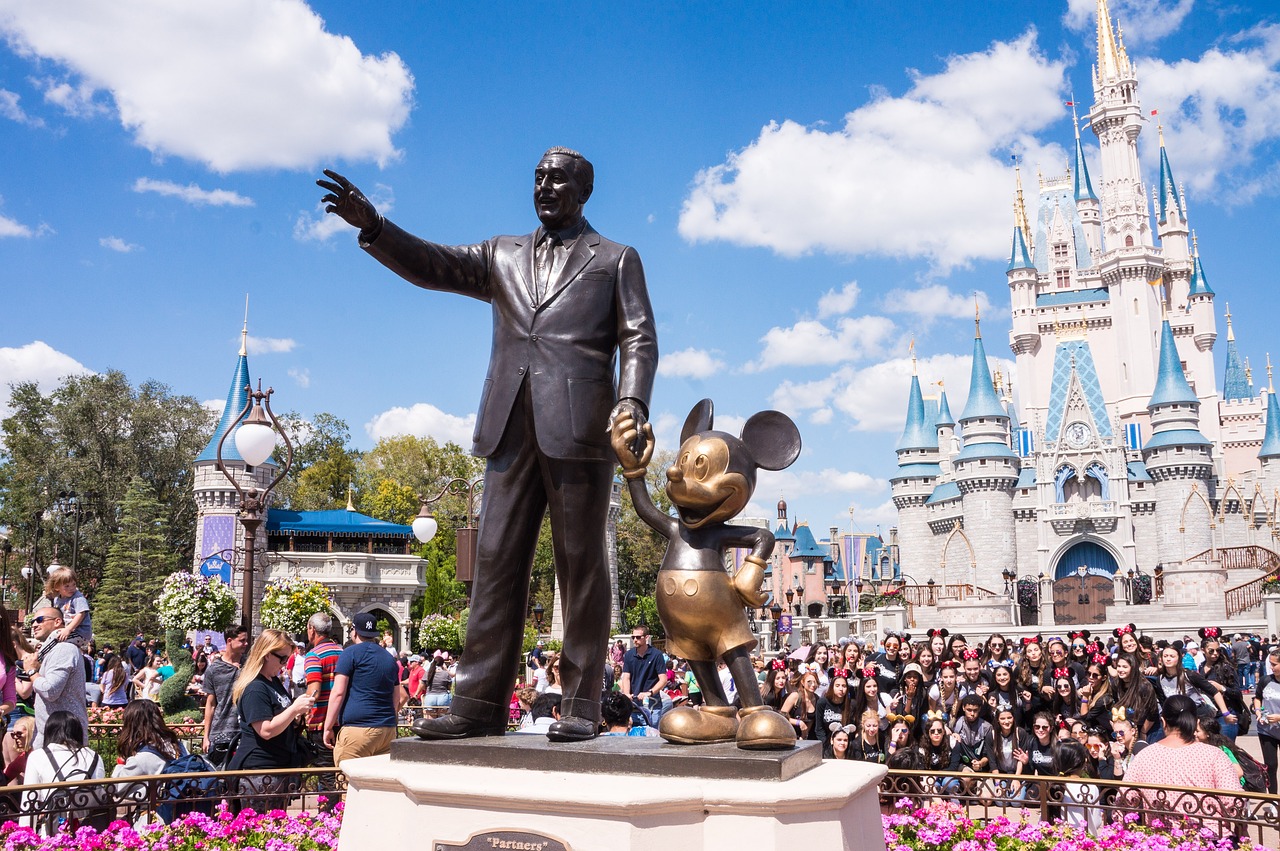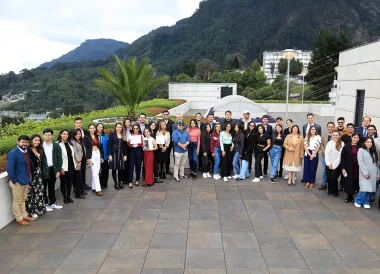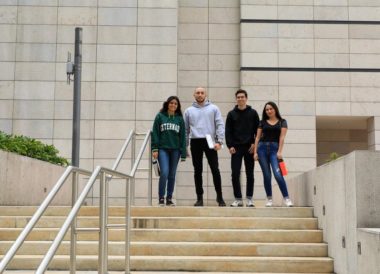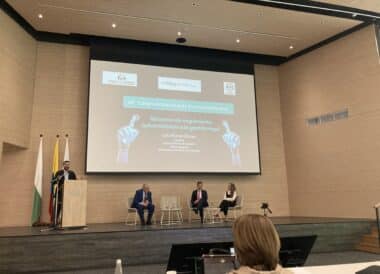Controversia
1 de octubre de 2024
Disney’s Journey to Arbitration
If you have been around the internet for the past few weeks, you might have run into some news about Disney and their latest legal controversy, when a man filed a lawsuit against the worldwide conglomerate after his wife died from an allergic reaction at a Disney Springs restaurant. This is the case of Jeffrey Piccolo, who filed a wrongful death lawsuit in February 2024 pursuing compensation for damages, that include medical and funeral expenses, mental pain and suffering, and loss of income derived from this situation[1]. The case took a significant turn when Disney asked the Florida court to send the case to arbitration, claiming that Mr. Piccolo agreed to it when he signed up for a Disney+ trial. Naturally, many people became concern upon this request, and due to the wide misinformation on the topic of arbitration, the narrative led to believe the company could not be sued just because the lawsuit was not going to be known by a federal court. However, that conception is incorrect.
For those who may not know, arbitration is an alternative dispute resolution (ADR) mechanism that allows people to submit their present and future conflicts to an arbitral tribunal (composed of one or more arbitrators designated by the parts), instead of recurring to a judge in the traditional legal system. When the procedure is finished, the tribunal will communicate their decision through an award, which will be binding and can be enforceable by the parts, just like a decision issued by a regular court. But many might still be wondering, how do I end up being obliged to submit a controversy to this mechanism? Well, this obligation comes from an arbitration agreement, which is defined by the article II of the New York Convention as an agreement in writing under which the parties undertake to submit to arbitration all or any differences which have arisen or which may arise between them in respect of a defined legal relationship, whether contractual or not, that will also outline the terms on how it will proceed, how the tribunal will be constituted, the choice of law, among other things.
In Mr. Piccolo’s case, he became involved in a commercial contract with The Walt Disney Company when he accepted the 30-day Disney+ subscription trial, which also happens to contemplate an arbitration agreement within its terms of use, by establishing that “any disputes between you and us, except disputes resolved in small claims court or relating to the ownership or enforcement of intellectual property rights, are subject to a class action waiver and must be resolved by individual binding arbitration. Please read the arbitration provision (section 8. Below) as it affects your rights under this contract[2]”. When reaching section 8, we can see the clause in its entirety, beginning with descriptions about the possibility of electing a small claims court or to recur to an informal dispute resolution, continuing with the arbitration process and rules, fees, settlement offers, survival of the arbitration agreement and more. The contract clarifies that the term dispute, “includes any claim, dispute, action, or other controversy, whether based on past, present, or future events, whether based in contract, tort, statute, or common law, between you and Disney concerning the Disney Products or this Agreement”, a statement that most of us should be aware of, so we can determine if arbitration could remain a possibility whenever we’re interacting with The Walt Disney Company, its subsidiaries, or its affiliates, as the clause follows.
Also, section 8 includes a segment regarding an opt out possibility, stating that “you may opt out of this arbitration agreement via mail. If you do so, neither party can force the other party to arbitrate. To opt out, you must notify us in writing no later than thirty (30) calendar days after first becoming subject to this arbitration agreement; otherwise you shall be bound to arbitrate. Disputes on a non-class basis in accordance with this Agreement”, which would also be important to consider from any future Disney user, since they will not be forced to recur to this ADR mechanism if they prefer not to.
By 2024, statistics show that Disney+ has reached 153.8 million subscribers[3], and judging by the how events occurred in Mr. Piccolo’s case, we would presume most of those subscribers agreed to Disney’s terms of use not only without understanding the implications behind the arbitration clause, but also without realizing they’re relinquishing their rights to seek justice through a regular judge. Our main goals as users of these platforms and services usually have everything to do with amusement and entertainment, and nothing with getting involved in situations that can cause us trouble, but whether we like it or not, problems can emerge whenever we’re least expecting, and by thoroughly understanding the contracts we sign, we can get prepared in a better way to handle any circumstance.
Luckily for Mr. Piccolo, and due to the public’s response, Disney decided to withdraw the motion to enforce the arbitration agreement, which is why the case will appear before an Orlando court starting October 2024. However, our questions about how an arbitral tribunal would have addressed this conflict, specially one derived from a wrongful death lawsuit, will have to remain unanswered, at least until a similar case comes to life. For now, we’ll have to keep a close eye not only on Disney, but on other platforms that handle dispute resolution in the same way, and most importantly, it is essential to keep arbitration on discussion, so people can remain familiarized with this mechanism, and instead of fearing it, they can receive it as a friendlier path to solve conflicts when the time comes.
*Monitora del Departamento de Derecho de los Negocios de la Universidad Externado de Colombia. Contacto: maria.castro21@est.uexternado.edu.co.
[1] Legal entertainment. (August 28th, 2024). Disney’s Not-So-Magical Lawsuit Could Have Major Implications For Wrongful Death Victims. Forbes Magazine. https://www.forbes.com/sites/legalentertainment/2024/08/28/disneys-not-so-magical-lawsuit-could-have-major-implications-for-wrongful-death-victims/.
[2] Disney Terms of Use. (May 24th, 2024). The Walt Disney Company. [Available in https://disneytermsofuse.com/english/].
[3] Statista. (2024). Number of Disney Plus subscribers worldwide from 1st quarter 2020 to 3rd quarter 2024. https://www.statista.com/statistics/1095372/disney-plus-number-of-subscribers-us/.
Artículos Recientes
¡Ya está disponible el caso! Segunda versión del Concurso Laboratorio de Estrategia Legal #LSL
Invitamos a los estudiantes de pregrado y postgrado de todas las carreras a presentar [...]
Masterclass Legal Operations: Transformando la Función Legal Empresarial de Guardián de Riesgos a Creador de Valor.
El Departamento de Derecho de los Negocios y la Facultad de Administración de Empresas [...]
Conclusión del Proceso de Reforma al Investor-State Dispute Settlement
En la semana del 12 de julio de 2023, durante la sesión anual de [...]
El Departamento de Derecho de los Negocios de la Universidad Externado de Colombia abre convocatoria para la vacante de Asistente de Investigación
¡Sé parte de nuestro equipo de trabajo! Perfil del cargo: Asistente de Investigación Apoyar [...]
Docente del Departamento de Derecho de los Negocios participó en el libro Blanco de la Asociación de Derecho Internacional
La Asociación de Derecho Internacional (ADI), una de la organizaciones más antiguas y prestigiosas [...]
CRYPTO IN COLOMBIA: PROSPECTIVE 2022
By: Daniel Peña Valenzuela The volatility of the main cryptocurrencies seems to be once [...]
Convocatoria de Monitores.
El Departamento de Derecho de los Negocios se complace en anunciar la apertura para [...]
¿Se avecina una regulación de la Franquicia por parte del Gobierno? ¿O lo impedirá la Corte Constitucional?
Por: Juan Miguel Álvarez* y Diana Marcela Araujo* En diciembre del 2020, el congreso [...]
Ciclo de seminarios de Innovaciones en Justicia Digital: un espacio desde la academia que replantea el futuro del sistema de justicia.
El Seminario en Innovaciones en Justicia Digital es un evento de la Universidad Externado [...]
Rostros de mentira: Retos legales producidos por las ‘Deepfakes’
Palabras clave: Deepfake, IA, contenidos audiovisuales, redes generativas adversarias, derecho probatorio, intimidad personal. Una [...]
Memorias: Tercer seminario de innovaciones en la justicia digital- aplicaciones de la inteligencia artificial en la práctica judicial.
El pasado 19 de septiembre de 2024, las instalaciones de la Universidad Externado fueron [...]
Celebramos la realización del 40º Congreso Nacional de Derecho Comercial: Novedades y retos de la contratación mercantil y del arbitraje comercial
El pasado 30 de octubre, en Medellín, se celebró el 40º Congreso Nacional de [...]


















